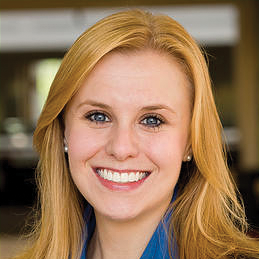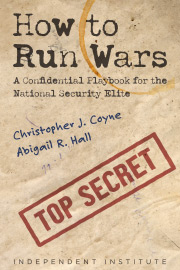Airports delays have gotten progressively worse thanks to the Transportation Security Administration, the agency that searches your person and property each time you fly.
The TSA’s new chief of operations blamed the longer delays on staff shortages and increased travel, a result of better economic conditions. Two U.S. senators blame airline baggage fees for the long lines. To avoid those fees, passengers are carrying on more luggage these days. More bags to search at security equals longer lines, or so the story goes. The senators suggest that the airlines suspend their fees.
Here’s an alternative that would cut wait times and greatly enhance your flying experience: Disband the TSA.
While many people complain about the hassle the TSA brings to flying, most are quick to accept it as necessary and would find my suggestion silly. After all, the TSA keeps us safe from terrorists, right?
Not even close.
First, air travel is incredibly safe. Consider that in 2010 nearly 632 million commercial airplane boardings occurred in the United States, an average of 1.73 million per day. That same year the United States recorded some 470 aviation fatalities for all domestic aircraft, both commercial and private. This includes deaths related to terrorism, mechanical failures and human error. Your chances of dying in a plane are essentially zero. This was true even for the period before and right after the 9/11 attacks, before the TSA came into existence.
But is this safety record the achievement of the TSA? Certainly the TSA has apprehended would-be attackers, right? Wrong again. The TSA has failed to provide any comprehensive data to suggest it has caught a single terrorist, nor has it pointed to any specific cases. On the contrary, according to the Government Accountability Office , at least 16 people who would later be accused of involvement in terrorist plots flew nearly two dozen times in the United States since 2004. The TSA caught none of them. In fact, passengers seem to do a better job of stopping possible attacks than the TSA. The now infamous “underwear bomber,” for example, was stopped by his fellow passengers, not government agents.
So what are the alternatives to the TSA? Many people would say that doing away with airport security all together is unfeasible. If they are right, we may instead look to private industry to provide airport security that is faster, cheaper and more effective.
Data suggest that private screeners are either just as good as the TSA or better. For example, a 2011 internal TSA report found that its agents at two of the nation’s busiest airports failed to detect fake explosives 60 and 75 percent of the time. Compare these failure rates to private airport security—in the 1990s. That year, the GAO reported that private screeners, armed with much less sophisticated technology, failed to detect explosives only 40 percent of the time. A GAO study from 2005 once again found that private security outperformed the TSA. USA Today found similar results.
Why would private firms do a better job than the TSA? It all comes down to incentives. Unlike the TSA, private firms would be forced to compete. As a government bureaucracy, the TSA has few incentives to streamline its process. It competes for government resources, not profits—and the worse it does, the more tax revenue it can claim it needs. Private firms, on the other hand, respond to market forces, meaning they have the incentive to invest in the best procedures and technologies, and to do a good job at providing security while not hassling customers. If they fail, they lose business.
So the next time someone in a security line complains about delays, offer a better idea—disband the TSA.









